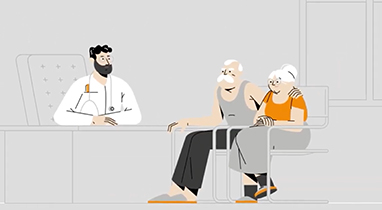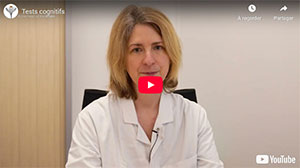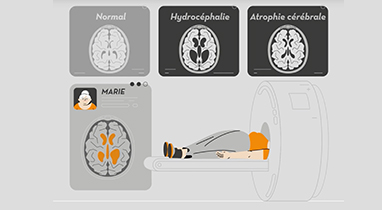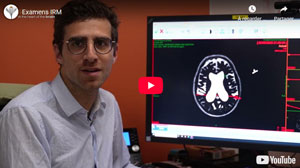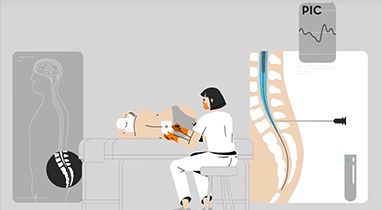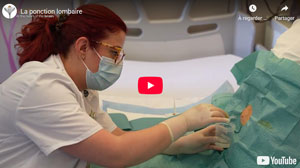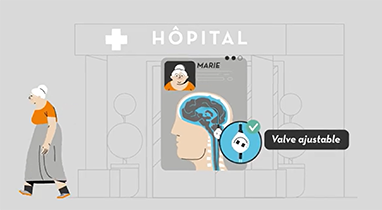
Experiencing difficulties to walk, loss of balance, falls, altered gait...
These may be symptoms of NPH (Normal Pressure Hydrocephalus).
This condition, which affects numerous individuals over the age of 65, can lead to disturbances in gait, memory, and bladder control. 1,4-6
Good news!
When NPH is diagnosed early, it can be effectively managed through surgical intervention. 4
What is NPH ?! 4
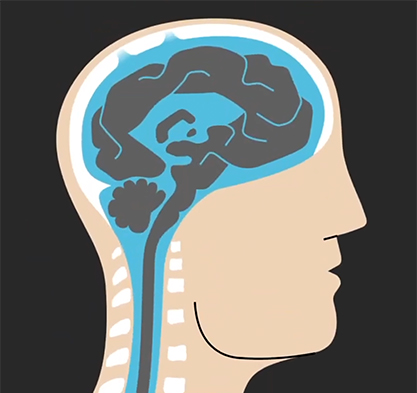
This disruption in CSF circulation impacts brain functionality. 7
NPH is classified as “idiopathic,” which means its exact cause is not known. 7
Studies indicate that NPH is prevalent among individuals over 65 years old, but remains largely under-diagnosed. 4
Have I noticed symptoms... Could it be NPH?
- Hindered walking as if the feet are glued to the ground.
- Slowed pace with small steps.
- Balance issues, potentially leading to falls.
If in doubt, contact your doctor.

“I find walking difficult; it’s not like it used to be… I’m worried it might be Parkinson’s disease.”
NPH might also present with: 1,2
- Urgent and hard-to-control urination.
- Urinary incontinence.

“I avoid going out because I don’t want to use protective garments for incontinence.”
If you are experiencing memory or attention disorders, these can also be caused by NPH: 3
- Physical and/or mental fatigue.
- Increased need for sleep or naps.
- Decreased interest in activities once enjoyed.
- Slower reading speed.
- Memory lapses.
- Frequent signs of depression.

I’m concerned it might be Alzheimer’s disease.”
IF YOU EXPERIENCE THESE SYMPTOMS OR HAVE ANY DOUBTS,
CONTACT YOUR DOCTOR.
How is NPH Diagnosed?
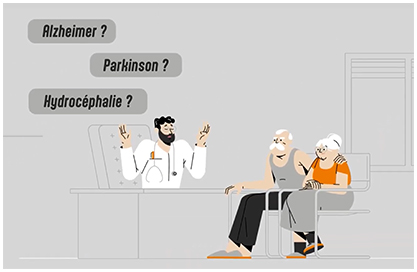
Diagnosing NPH can be challenging as its symptoms may mimic those of Alzheimer’s or Parkinson’s diseases.2
Currently, there is no specific test to diagnose NPH. 8
Nevertheless, a comprehensive evaluation by a doctor, including a review of medical history and symptoms along with certain diagnostic tests, is required to diagnose NPH. 9

Initial consultation with a general practitioner to discuss your symptoms.
Discovery of the symptoms

Referral to specialists for further diagnostic testing and a complete evaluation.9,10

Surgery
Surgical Intervention 8
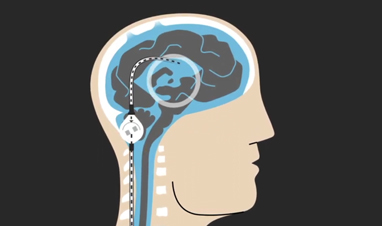
The surgery for NPH is called a ventriculoperitoneal shunt.
It is performed under general anesthesia and typically lasts under an hour. In most cases, patients are allowed to leave the hospital on the same day..
The purpose of the surgery is to facilitate the drainage of fluid accumulated in the brain to another part of the body using a valve.
A valve is a small, imperceptible implant that is placed to assist the patient throughout their life.

Symptom improvement is observed in 80% of cases 4

Tailored follow-up based on treatment protocol
Speaking of treating NPH,
but what if it was good news?
Unlike other neurodegenerative conditions such as Alzheimer’s or Parkinson’s, there is an effective surgical treatment for NPH. 8
Prompt management of the disease is crucial, particularly for improving quality of life and independence. 11,12
How is NPH Diagnosed?
1. SCHEDULE AN APPOINTMENT
WITH YOUR DOCTOR

2. PREPARE FOR YOUR CONSULTATION IN JUST A FEW MINUTES WITH OUR ONLINE QUESTIONAIRE

3. DISCUSS
YOUR SYMPTOMS
WITH YOUR DOCTOR

They share their story.
Discover patients and family testimonials.
Frequently Asked Questions (FAQ)
NPH primarily affects individuals aged 65 and older, and it is estimated that up to 6 to 9% of those over 80 are afflicted. This prevalence is likely underestimated. 4,13
If you think you might be affected by NPH, do not hesitate to discuss it with your doctor.
If not managed, NPH can increase the risk of falls and reduce life expectancy. 5,6However, there is an effective surgical treatment available. 9
If in doubt, consult your doctor.
Gait disturbances are generally one of the first symptoms of. It may be accompanied by frequent falls. 14
If you have doubts, consult your doctor.
It has been demonstrated that up to 80% of patients who receive surgical treatment for NPH see an improvement in their symptoms. 4
If you feel concerned, talk to your doctor.
If you suspect that you or a loved one might be affected by NPH, do not hesitate to schedule an appointment with your doctor to discuss it. You can prepare for your consultation using our online questionnaire.
Ressources :
2. Passos-Neto CEB, et al. Normal pressure hydrocephalus: an update. Arq Neuropsiquiatr. 2022;80(5 Suppl 1):42-52.
3. Williams MA, Malm J. Diagnosis and Treatment of Idiopathic Normal Pressure Hydrocephalus. Continuum (Minneap Minn). 2016;22(2 Dementia):579-99.
4. Manet R, et al. Managing Idiopathic Normal Pressure Hydrocephalus: Need for a Change of Mindset. World Neurosurg. 2023;178:e6-e12.
5. Larsson J, et al. Falls and Fear of Falling in Shunted Idiopathic Normal Pressure Hydrocephalus-The Idiopathic Normal Pressure Hydrocephalus Comorbidity and Risk Factors Associated With Hydrocephalus Study. Neurosurgery. 2021;89(1):122-128.
6. Jaraj D, et al. Mortality and risk of dementia in normal-pressure hydrocephalus: A population study. Alzheimers Dement. 2017;13:850-7.
7. Koleva M, De Jesus O. Hydrocephalus. [Updated 2023 Aug 23]. Dans : StatPearls [Internet]. Treasure Island (FL): StatPearls Publishing; 2023 Jan-. Disponible sur : https://www.ncbi.nlm.nih.gov/books/NBK560875/.
8. Fournier J, et al. Hydrocéphalie à pression normale. Rev Med Suisse. 2010; -4(245):836–839.1.
9. Mongin M, et al. Hydrocéphalie à pression normale : mise au point et aspects pratiques. La Revue de Médecine Interne. 2015;36(12):825-833.
10. Hospices civils de Lyon. Hydrocéphalie chronique et autres pathologies chroniques du liquide cérébro-spinal. 2023. Disponible sur : https://www.chu-lyon.fr/hydrocephalie-chronique-et-autres-pathologies-chroniques-du-liquide-cerebro-spinal. [Consulté le 15/02/2024]
11. Petersen J, et al. Improvement in social function and health-related quality of life after shunt surgery for idiopathic normal-pressure hydrocephalus. J Neurosurg. 2014;121(4):776-784.
12. Grasso G, Torregrossa F. The impact of cerebrospinal fluid shunting on quality of life in idiopathic normal pressure hydrocephalus: a long-term analysis. Neurosurgical Focus. 2023;54(4):E7-.
13. Jaraj D, et al. Prevalence of idiopathic normal-pressure hydrocephalus. Neurology. 2014;82(16):1449-1454.
14. Dias SF, et al. Gait pattern analysis in the home environment as a key factor for the reliable assessment of shunt responsiveness in patients with idiopathic normal pressure hydrocephalus. Front Neurol. 2023;14:1126298.
Publication Director: Mr. Philippe Nègre
Sophysa S.A
5, rue Guy-Môquet
91400 Orsay – FRANCE
Phone: : +33(0)1 69 35 35 00
VAT ID: FR 06 306 979 584
Sophysa is a public limited company with a capital of 500,000 €, registered at the RCS of Évry under number B 306 979 584.
All content on this website is owned or controlled by Sophysa and is protected by global copyright laws. You may download content only for your personal, non-commercial use, but no modification or reproduction of the content is permitted. The content may not be copied or used in any manner. The trademarks, trade names, and products on this website are internationally protected. No use of them can be made without the prior written permission of the site owners, except to identify the products or services of the company.
This site may contain links or references to other websites. Please note that we do not control other websites and that, in any case, these Legal Notices do not apply to those websites. We encourage you to read the Legal Notices of each website you visit. With prior written permission from Sophysa, the use of hyperlinks pointing to the Sophysa site is permissible for all websites, excluding those disseminating racist, pornographic, xenophobic information or, more generally, information that could harm individuals. The opening of this website within a frame (“framing”) by other sites from parts not related to the Tokibo group is strictly prohibited.
The owners of this site will make reasonable efforts to include up-to-date and accurate information on this website, but make no representations, warranties, or assurances as to the accuracy, currency, or completeness of the information provided. The owners of this site are not liable for any damage or injury resulting from your access to, or inability to access, this website, or from your reliance on any information provided herein, merely for the convenience of the website users.
If you have questions, comments, or concerns about the Legal Notices or information practices of this site, please contact us here: contact@sophysa.com.
Website Hosting:
INFOMANIAK NETWORK SA – 26, Avenue de la Praille – 1227 Carouge | Geneva – SWITZERLAND
Phone: : +41 22 820 35 44 – Fax : +41 22 301 67 69
Email : contact@infomaniak.ch
Website: www.infomaniak.ch
